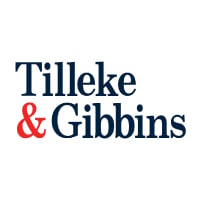

Assistant vice president, legal and compliance | SHERA






Tanapat Mahapanitkul
Assistant vice president, legal and compliance | SHERA
What are the most significant projects and/or transactions that you and/or your legal team have recently been involved in?
At SHERA Public Company Limited, our legal team has played a pivotal role in supporting the company’s international expansion, particularly across India and the Philippines. In 2024, we led comprehensive legal due diligence, negotiated land lease and sale agreements, and coordinated with government authorities to facilitate strategic land acquisitions. We also conducted thorough feasibility studies and risk assessments to ensure compliance with local zoning, investment, and construction regulations.
Currently, in 2025, we are managing one of the Group’s largest investments: the establishment of a manufacturing facility in India. This encompasses legal management related to land acquisition, drafting and negotiation of EPC contracts, environmental approvals, and securing regulatory clearances. Concurrently, we are strengthening regulatory compliance at our Philippine facility, focusing on investment incentives (BOI) and trade defense measures such as Anti-Dumping Investigations (ADI), ensuring market competitiveness and legal certainty.
What sets our legal team apart is a proactive, business-partnering mindset. We collaborate closely with finance, operations, and engineering teams to embed legal considerations early, anticipate risks, streamline execution, and support the company’s long-term strategic goals across multiple jurisdictions.
How do you approach managing aspects during periods of instability or crisis to ensure the organisation’s resilience?
In my dual role overseeing Legal and Risk Management, I adopt an integrated approach to organizational resilience. During instability, our priority is real-time visibility, data-driven decision-making, and seamless cross-functional collaboration.
We leverage AI-powered tools for contract analytics and enterprise risk assessment, which proactively identify potential compliance and operational risks. These insights are automatically updated on a centralised dashboard accessible to leadership, enabling timely risk mitigation and business continuity planning. We also developed a digital IP monitoring dashboard, allowing departments to access real-time updates on trademarks, copyrights, and filings without relying on legal intermediaries. This transparency improves agility and reduces operational bottlenecks.
Our crisis-readiness framework is anchored in strong governance, scenario planning, and legal design thinking. Contracts incorporate pre-built crisis clauses, and cross-border compliance is tracked through automated alerts. Rather than reacting to crises, we anticipate them—embedding legal and risk management into strategic execution. Our goal is not only to protect the company but also to empower confident growth in volatile environments.
How do you ensure legal compliance while driving digital transformation?
Ensuring legal compliance while accelerating digital transformation requires strategic vision and operational discipline. We have led legal digital transformation initiatives across Thailand, India, the Philippines, and Indonesia, ensuring full compliance with PDPA and local data protection laws.
Our strategy rests on four pillars: Risk-Based Digital Integration which includes Conducting Privacy Impact Assessments before implementing legal tech, such as contract lifecycle and e-signature systems, to mitigate risks and ensure compliance. Secondly, Privacy by Design and Default which entails mbedding data protection principles from the start, including encryption, access controls, consent management, and data minimsation. Thirdly, Legal Tech Governance: Establishing a cross-functional governance framework with legal, compliance, IT, and data privacy teams to oversee all digital initiatives. Fourth and finally, Continuous Monitoring and Capacity Building: Conducting regular audits, deploying automated alerts, and providing ongoing staff training to maintain compliance and system integrity.
Recently, we implemented a regional digital contract management system aligned with PDPA laws, reducing manual processing by 80% and enhancing audit readiness. These efforts position legal compliance as an enabler, not a barrier, to scalable and secure innovation.
What are the most important attributes of a modern in-house counsel?
A modern in-house counsel must possess a diverse set of attributes that extend beyond traditional legal expertise. First, strong business acumen is essential. Understanding the company’s industry, strategy, and commercial drivers allows legal advice to be practical and aligned with business goals.
Adaptability and agility are critical, given the rapidly evolving regulatory and technological landscape. Modern in-house counsel proactively anticipates risks and opportunities rather than react to issues after they arise.
Excellent communication and collaboration skills are vital, as in-house lawyers work closely with cross-functional teams such as finance, operations, and compliance to seamlessly integrate legal considerations into business decisions.
Technological proficiency, including expertise in legal tech, data privacy, and cybersecurity, is essential to enhance efficiency and ensure compliance in today’s digital environment.
Lastly, integrity, ethical judgment, and a strong commitment to business ethics underpin all actions, ensuring the organisation operates within legal and moral boundaries while safeguarding its reputation and maintaining stakeholder trust.
Assistant vice president, legal and compliance | Shera